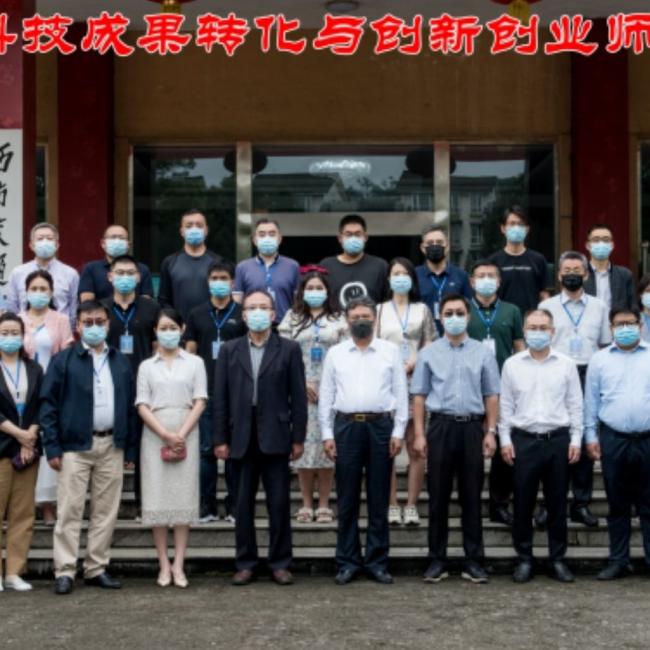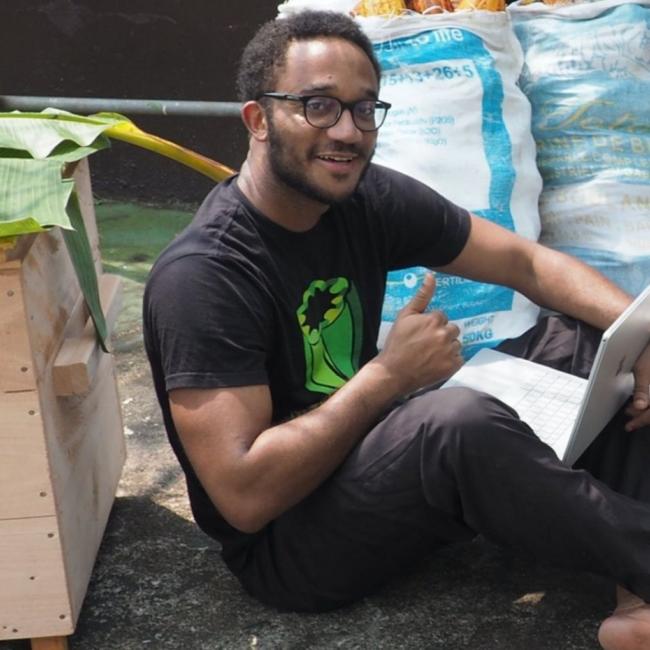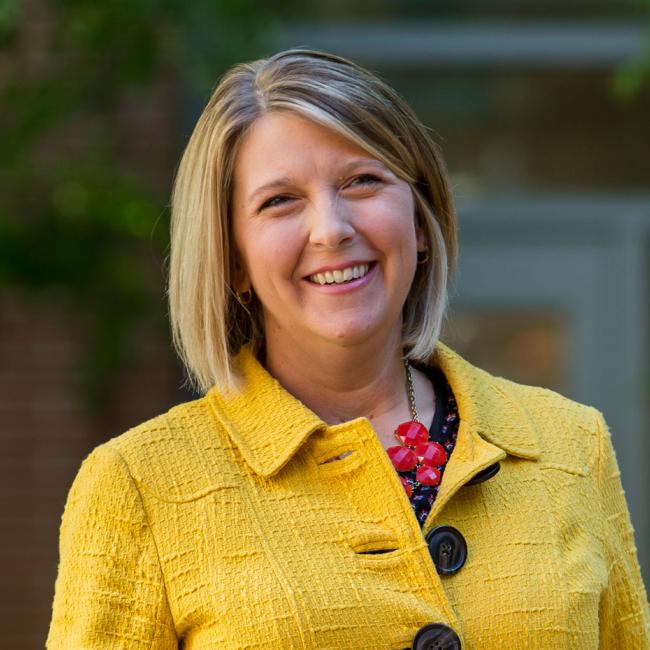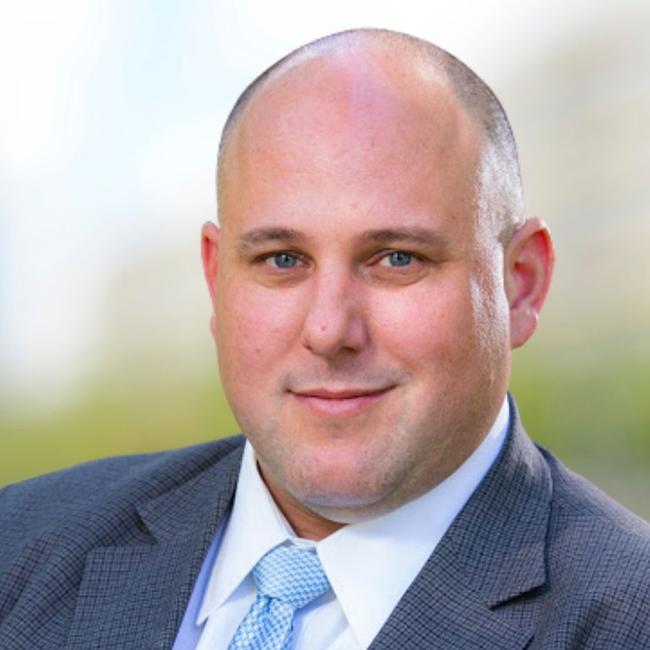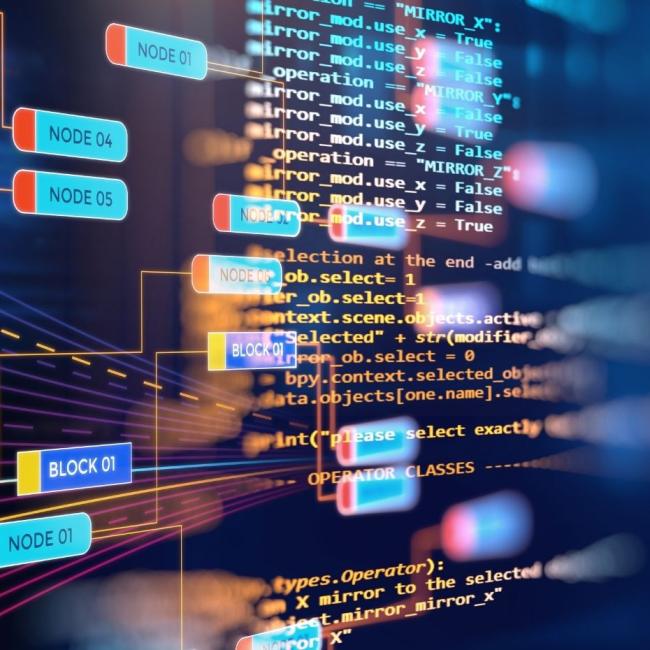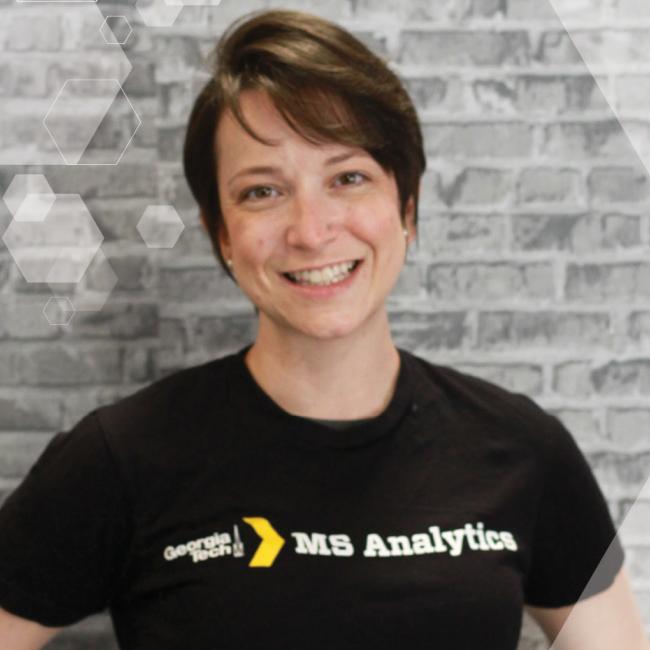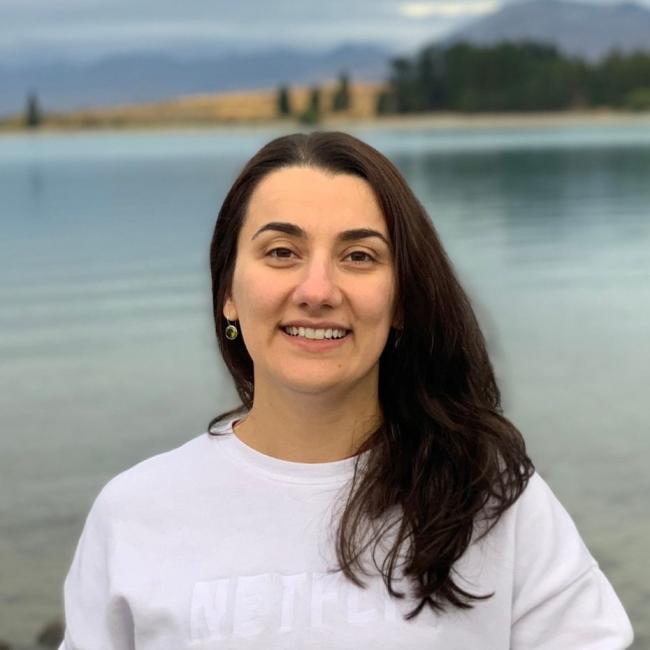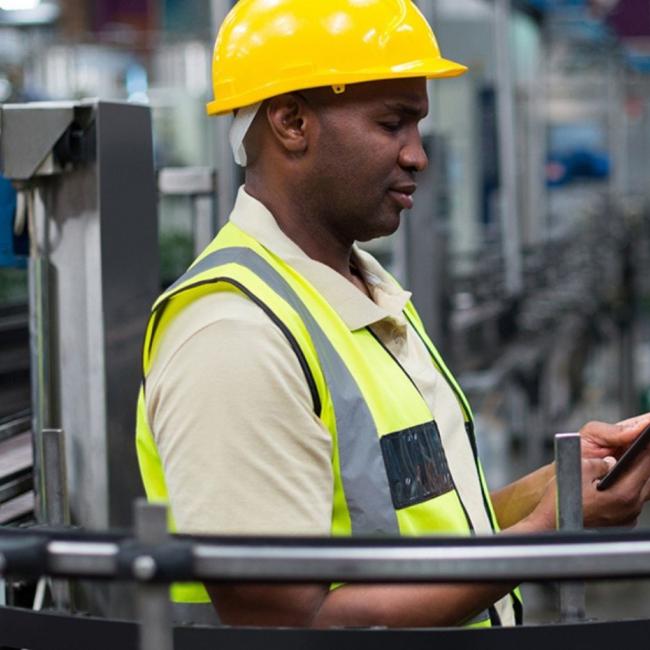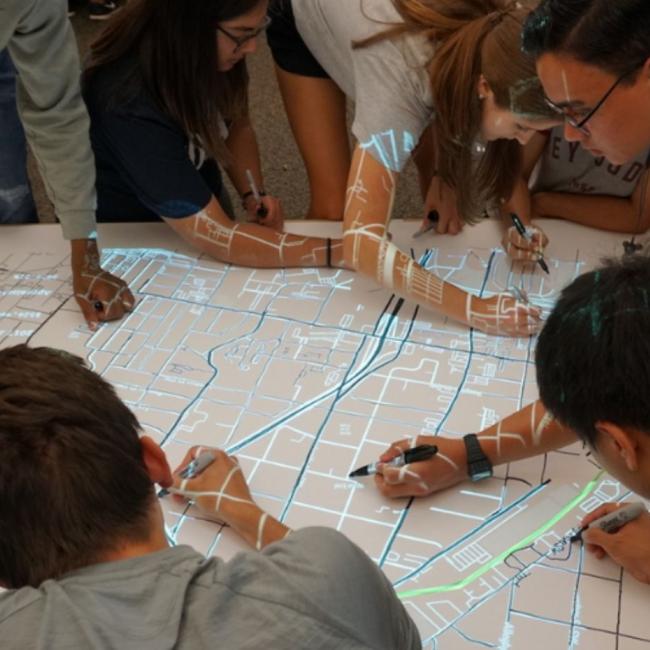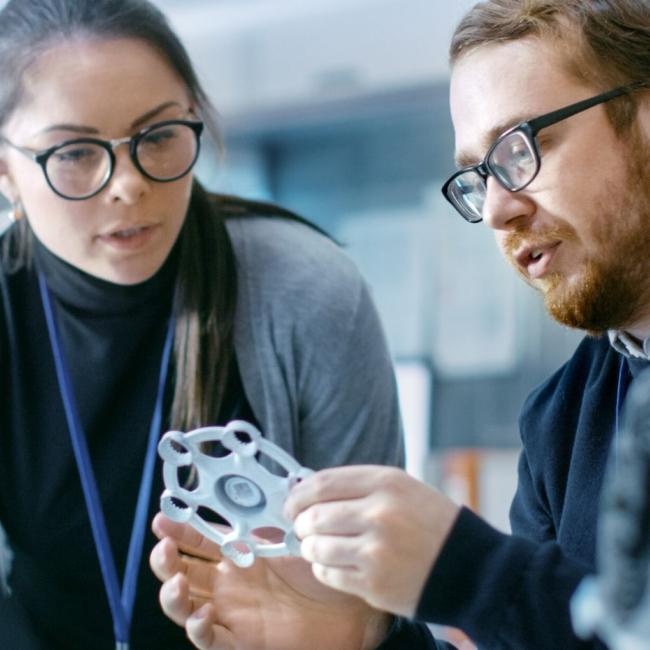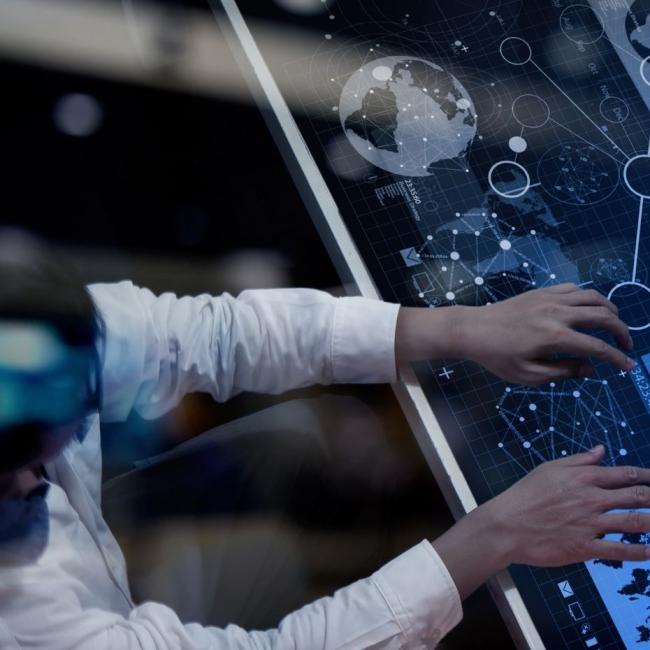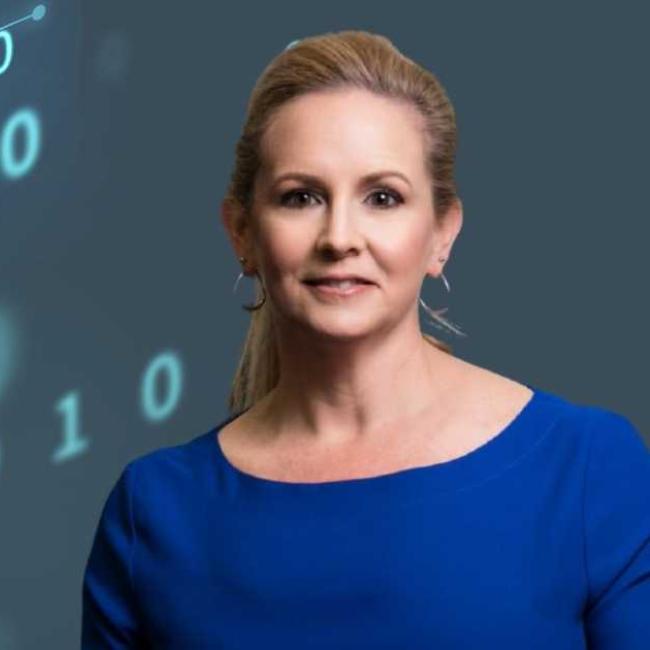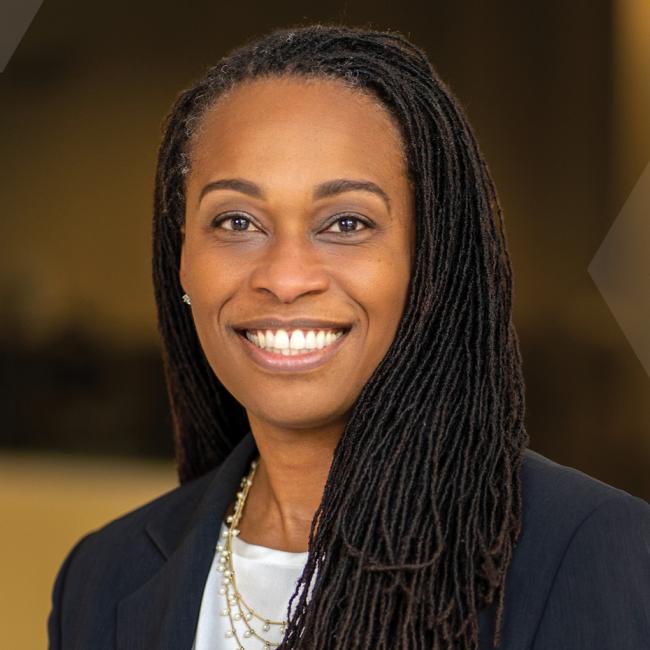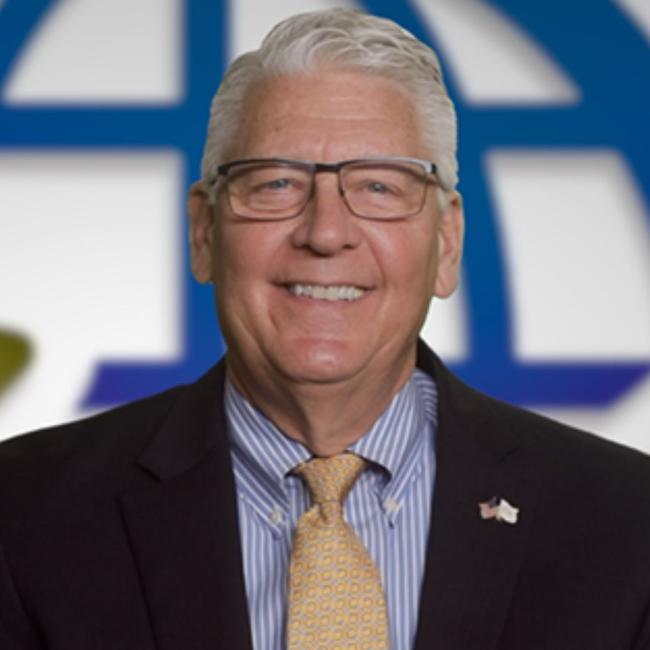Reimagining Lifelong Learning
A Letter from Dean Baker
Nearly two years have passed since the onset of the Covid-19 pandemic. During this unprecedented time, organizations across all industries have shown immense resilience, successfully pivoting their workflows and workforce into a digital-first environment.
As we celebrate another year of completion, Georgia Tech Professional Education (GTPE) has also been growing, stretching, and learning, dedicated to finding new and innovative ways to help our community navigate this rapidly changing world.
Despite uncertainties, our learners have embraced change – adjusting to the way they work and how they foster the development of their personal and professional learning goals.
Whether championing new proficiencies, pursuing additional credentials, or even changing careers, these working professionals have used education as a critical tool for workforce relevance.
While the world enters an era of labor shortages and skills gaps, I see this as a time to be bold. We’re exploring what the workforce needs for long-term agility in order to re-imagine how we deliver this knowledge from one career to another. We’re also committed to being a catalyst for transformation.
As you look through our 2021 Impact Report, you’ll see how we’ve spent the last year building upon our foundation of excellence and impact while serving as a voice for affordable, achievable, and accessible education for the years ahead.
I, and all of GTPE, value the contributions of our university community, faculty, staff, and learners to the shared commitment and values we hold together. Working together, possibilities unfold that seemed insurmountable but are now achievable. I thank each of you for these commitments to the Georgia Tech values and especially for serving all Georgia Tech learners, everywhere.
 |
|
High-Quality Programs
Deliver high-quality, in-demand programs to advance careers and address workforce needs
As an essential resource to the industry, we spent the last year expanding and refining our professional education to address emerging trends and transformations in business and technologies.
With online learning options more paramount than ever, we saw a record number of enrollments into our open online courses while expanding and launching new programs in emerging areas such as digital marketing and product management.
We also saw a considerable shift within the workplace with the integration of whole-person development. As such, we developed professional offerings that focused on personal skills training while increasing resilience and fostering well-being. In this spirit, we revised our decade-old project management professional program to reflect the current and forecasted needs within the workforce.
Beyond our signature, high-quality programs, we’ve partnered with companies to provide customized training to meet their talent needs in a quickly changing market while extending our ecosystem of learning partners within the Institute to help grow and develop Georgia Tech’s faculty and staff.
Learner Experiences
Improve all aspects of learners’ interactions and experiences
More than 193,000 learners turned to us in 2021 to sharpen their skills, acquire new knowledge, and earn high-demand credentials to advance or change their careers.
As we adapted to the ways we worked, lived, and learned, we also strived to serve as a ready source for those in their fields. Renewed partnerships with industry leaders, such as the Project Management Institute Atlanta Chapter, have created a culture of experiential learning beyond the classroom, while expanded virtual course offerings have supported efforts to keep our learners progressing within their careers and industries.
We’ve also continued to build community within our online degree programs, launching nine virtual Q&As throughout the semester for students to connect with their advisors. All while celebrating the first cohort of graduates from our Online Master of Science in Cybersecurity program, Georgia Tech’s third degree-at-scale.
Educate & Engage
Actively engage and drive change in academics, communities, and industry
As a unit with direct connections to the business community and its workforce, we are uniquely positioned to serve learners of all ages. This vantage point – at the intersection between campus and industry – is also key in supporting the economic development of our region, state, and beyond.
This past year saw tremendous growth for our military programs with an increased pipeline of post-service resources and skill development expansion in a new sought-after subject, warehouse logistics. This increase in program offerings and funding has allowed the program to grow beyond the state of Georgia, reaching service members in all four branches across the nation and shattering barriers to employment, cost, and location.
Additionally, we invested time and resources into tomorrow’s innovators and educators, cultivating diversity, equity, and inclusion within the technology industry while strengthening pathways into STEM careers alongside Georgia Tech's Center for Education Integrating Science, Mathematics, and Computing (CEISMC).
Create New Knowledge
Support a culture of educational innovation to address the needs of learners and employers
With long-standing expertise in technology, distance delivery, and virtual engagement, we have a reputation as a driver of change.
As the Institute experienced a mix of remote and hybrid learning models for most of the year, our work with the Remote and Hybrid Teaching Academy underscored the importance of meaningful educational outcomes.
In support of learning within the Institute, we captured and delivered thousands of hours of synchronous and asynchronous content for graduate and undergraduate distance learning courses, receiving accolades from campus and our peers in professional, continuing, and online education.
We also took part in initiatives, activities, and events beyond the Tech campus to raise awareness of the Institute’s leadership in lifetime learning while becoming a valued contributor for accessible education models. Our signature event, the Affordable Degrees-at-Scale Symposium, took on new meaning during the pandemic as global leaders added an important perspective to the possibilities around affordable, accessible, and achievable online education.
A Sampling of Knowledge Sharing
- Georgia Tech Professional Education hosted two Affordable-Degrees-at-Scale Symposiums on Nov. 1-3, 2021 (in-person and virtual) and March 2-3, 2021 (virtual).
- Yakut Gazi, associate dean of Learning Systems, co-authored the Atlanta Declaration.
- Baker. N. Seven Years of Growth: State of Georgia Tech’s at-Scale Programs. Affordable Degrees-at-Scale Symposium. March 2, 2021. Online.
- Baker, N. Today's Learners and the Future of Higher Education: Recommendations for Remaining Relevant, Innovative, and Sustainable. IACEE 2021. May 27, 2021. Online.
- Baker, N. What does it take to keep up in the global FinTech industry regarding competence? Micro-credentials and Digital Transformation in Higher Education. IACEE 2021. May 27, 2021. Online.
- Baker, N. & Gazi, Y. Learning at Scale and Affordability in a Post-COVID World. USDLA. May 14, 2021. Online.
- Baker, N. & Gazi, Y. Affordable Online Programs at Scale. IACEE 2021. May 24, 2021. Online.
- Berge, R., Borbely, E., Gazi, Y., Landsiedel, D., Marca, P., & Scalzo, K. Driving a sustainable digital strategy for higher education: Seeing the world from the learners' point of view. 17th World Conference of the International Association of Continuing Engineering Education (IACEE). May 24-28, 2021. Online.
- Botchwey, N. The Case for Cities: A Conversation Series. University of Cincinnati’s School of Planning. Nov. 28, 2020. Online.
- Branon, R., Dede, C., Gazi, Y., Griffith, B. & Scott, A. Developing a 60-year curriculum for a 100-year life. Invited panelist at ASU-GSV Virtual Summit: The Dawn of the Age of Digital Learning. Oct. 1, 2021. Online.
- Cavanagh, T. & Gazi Y. (Sept. 16, 2020). Blended Learning in 2020. Invited panelist by Instructure. Sept. 16, 2020. Online.
- Cavanagh, T., Dark, S., Gazi, Y., White, N. Repairing our reputation post-COVID. IMS Global Learning Impact Leadership Institute. Panel scheduled to be presented Oct. 4-7, 2021. Online.
- Clark, R. Ocean Visions, Youth4OceanAction, and Smart Sea Level Sensors. Global Climate Action Symposium. Sept. 29, 2021. Online.
- Corn, A. The Power of Human Capital – Why Diverse Teams Make Companies Better. FinTech South. June 23, 2021. Online.
- Gazi, Y. Regular and Substantive Interaction: Regulatory & Pedagogical Implication. National Distance Learning Week. Oct. 23, 2020. Online.
- Gazi, Y. Moving Horizontally: New Dimensions of at-Scale Learning in a Time of Crisis” SOL+AR 2021 Summit. Jan. 28, 2021. Online.
- Gazi, Y. Affordability, Access, and Rankings for at-Scale Learning. Affordable Degrees-at-Scale Symposium. March 3, 2021. Online.
- Gazi, Y., Akcali, E., Holloway, B., & Tekinay, S. Diversity and Inclusion in STEM as a Catalyst for Sustainability. IACEE. April 30, 2021. Online.
- Gazi, Y. Upskilling and Reskilling for the Changing Workforce. ASEE. May 20, 2021. Online.
- Gazi, Y. Automation-proof professional education: The role of higher education in inclusive lifetime learning. Presentation at the 17th World Conference of the International Association of Continuing Engineering Education (IACEE). May 24-28, 2021. Online.
- Gazi, Y. Driving a Sustainable Digital Strategy for Higher Education; Seeing the World from the Learners' Point of View. IACEE 2021. May 26, 2021. Online.
- Gazi, Y. Automation-Proof Professional Education: The Role of Higher Education in Inclusive Lifetime Education. IACEE 2021. May 28, 2021. Online.
- Gazi, Y., Bishop, MJ., Branon, R., Sibley, K., Walshok, M. The Challenge of Mass Transition to Remote Delivery as an Issue of Scale. IMS Global Learning Impact Leadership Institute. Panel scheduled to be presented Oct. 4-7, 2021. Online.
- Harmon, S. The Complexity of Being: A Case for Digital Credentials in the Post-Pandemic Future. Digital Credentials Summit. March 2, 2021. Online.
- Harmon, S. Dialogues in Design Thinking: reconsidering the interdisciplinary design studio experience in the School of Architecture at Georgia Tech. 2021. Online.
- Harris, K. & Helton-Amos, S. Using Content to Positively Position Your Brand During a Global Crisis. UPCEA Marketing and Enrollment Management Seminar. Dec. 2, 2020. Online.
- Miles, P. Future-Focused Leadership: Insights, Ideas, and Innovations. UPCEA Coffee Chat. 2021. Online.
- Rogers, M. Market and Demand Analysis. Affordable Degrees-at-Scale Symposium. March 3, 2021. Online.
- Sanders, S. Market Analysis and Marketing for at-Scale Programs. Affordable Degrees-at-Scale Symposium. March 2, 2021. Online.
- Wooley, J. Keys to Success for a Student-Centered Approach to at-Scale Programs. Affordable Degrees-at-Scale Symposium. March 2, 2021. Online.
- Baker, N. “Lifelong Learning in Engineering: An Imperative to Achieve Sustainable Development Goals.” Engineering for Sustainable Development: Delivering on the Sustainable Development Goals. The United Nations Educational, Scientific, and Cultural Organization. 2021.
- Botchwey, N., Chatman, O. E., Trowbridge, M. J., Gazi, Y. (Forthcoming in Spring 2022). Training the next generation of healthy place makers. In Botchwey, N., Dannenberg, A., Frumkin, H. (eds). Making healthy places (2nd edition). California: Island Press.
- Ferguson, L. & Watts, R. “The Prospect of Managers as Co-Learners.” Association for Talent Development. 2021.
- Gazi, Y. (July 2020). "As online education takes centerstage, traditional classrooms can benefit." Academic Leader.
- Gazi, Y. & Baker, N. (2021). Moving horizontally: The new dimensions of at-scale learning in the time of COVID-19.
- Gazi, Y. & Baker, N. (2021). Higher education’s changing faces: Serving STEM learners for a lifetime. In Wingard, J. and Farrugia, C. (eds). The great skills gap: Optimizing talent for the future of work. Stanford University Press: Stanford, CA.
- Gazi, Y., Baker, N., and Sibley, K. (2021). "Learning at scale, affordability, and access in a post-Covid world."
- Harmon, S.W. “Designing the Georgia Tech Atrium: an adventure in education innovation.” Dialogues in Design Thinking: reconsidering the interdisciplinary design studio experience in the School of Architecture at Georgia Tech. Edited by Ju-Youn Kim, J. Georgia Institute of Technology School of Architecture. 2021.
- Watts, R. & Harber, B. “How to Create Leadership Fluency: Cultivating Communities of Practice for Seasoned and Aspiring Leaders.” Industry Training Magazine. 2021.
Operational Excellence
Pursue ongoing operational improvements for superior service and build a deliberately innovative and inclusive culture within GTPE
Each year we seek to create and implement strategies that empower collaboration, facilitate continuous improvement, and support our long-term growth as the lifelong learning arm of the Institute.
While we had digital backbones before the pandemic, we saw an opportunity to build upon our technologies for additional transformations. Our upgraded event services and capabilities allowed us to reach even more learners around the globe through new virtual and hybrid solutions. And a cross-functional task force helped envision future transformations for our people, product, and process dimensions.
Additionally, we simplified the management of employee development across the Institute. From centralizing workforce development and professional learning under one umbrella to leading the transition to a new employee learning platform, we aimed to make employee development and training more accessible.
Lifetime Learners and Industry Leaders
- Yakut Gazi, associate dean of Learning Systems, was elected to be the first Vice President of the International Association for Continuing Engineering Education (IACEE).
- Christie Hayes, Instructional designer manager, was elected to a leadership role in the Quality Matters Instructional Designers Association.
- Victoria Nail-Taylor, senior portfolio manager, has been appointed as the President of the Georgia Chapter of the Society of Government Meeting Professionals.
- Gregory Showman, principal research engineer and Georgia Tech Research Institute fellow, was named Regents Professors and Regents Researchers by the Board of Regents of the University System of Georgia.
- Joel Sokol, director of the interdisciplinary Master of Science in Analytics (on-campus and online), was announced as a Leading Academic Data Leader by Chief Data Officer Magazine.
- Fatimah Wirth, instructional designer, received recognition for her work on the Industrial & Systems Engineering 6644 course.
- OMS TAs Honored at CTL Ceremony
- Nelson Baker, dean of Professional Education, was elected to be the Secretary General of the International Association for Continuing Engineering Education (IACEE).
- Yakut Gazi was elected as a board member (Director-at-large) for the University Professional and Continuing Education Association (UPCEA)
- Aiesha Dawda, Portfolio Manager II Savannah, received her second Master's Degree from Georgia Southern University in Higher Education
- Victoria Nail-Taylor, Portfolio Manager Senior, received her Master's Degree in Business Administration from Fitchburg State University
- Alvin Dickson, Assistant Director Back of House Operations, was accepted into the Morehouse Business Administration program
- Saxon Seigler, Operations Service Rep I, is completing his computer networking certification through Coursera
- Nelson Baker, dean of Professional Education, was honored with 2021 Award for Individual Leadership in Continuing Education from the International Association of Continuing Engineering Education (IACEE).
- Nisha Botchwey, associate dean of Academic Programs, was announced as the Scholar Prize winner for the 2021 William R. and June Dale Prize for Excellence in Urban and Regional Planning.
- Yakut Gazi, associate dean of Learning Systems, has been awarded the 2021 Certificate of Merit by the American Society for Engineering Education Continuing and Professional Development Division for her many years of service to the organization and her work in affordable degrees-at-scale and received a Microsoft/C21U grant for a program on Accessquity: Digital Accessibility, Equity, and Inclusion in a Post-COVID World.
- GTPE received two Crystal Awards from the Association for Educational Communications and Technology Division of Distance Learning at their annual convention.
- The Veterans Education and Transition (VET2) program received first place for its Military Transition to the Workforce course.
- The Online Master of Science in Analytics program received third place for its Analytics Modeling course on edX and Canvas.
- The Georgia Tech Remote and Hybrid Academy (GTRHTA) team received the Excellence Award at the 2021 Faculty & Staff Honors Celebration. The GTPE members of the team recognized by this award are Nisha Botchwey, Troy Courville, Shakis Drummond, Desmond Gardfrey, Yakut Gazi, Christie Hayes, Nilufer Korkmaz, and Chris Williams.
- Georgia Tech Remote and Hybrid Academy (GTRHTA) that prepared and supported Georgia Tech faculty for hybrid and online teaching during Covid-19 received: 2021 University Professional and Continuing Education Association (UPCEA) South Region Program of Excellence: Noncredit Award
- Melody Austin, human resources business partner, was elected to Georgia Tech Staff Council and serves as employee engagement chair. She also serve as a member of the Faculty Affairs Mutual Expectations Committee.
- Melody Austin, human resources business partner; Robin Finey, senior portfolio manager; and Cheryl Rankin, assistant budget director, were members of the AdminX Internal Advisory Committee.
- Nancy Brandon, marketing manager; Aiesha Dawda, portfolio manager; Shayla Hill, assistant director of digital strategy; and Karen Tucker, director of Language Institute, were selected as part of the fifth cohort of the Inclusive Leaders Academy.
- Nancy Brandon, marketing manager, and Melina Kodde, marketing manager, graduated from the second cohort of ASPIRE.
- Nisha Botchwey, associate dean of Academic Programs, was selected as the Georgia Tech representative to the University System of Georgia Faculty Council.
- Nisha Botchwey, associate dean of Academic Programs, and Yakut Gazi, associate dean of Learning Systems, served on the COVID-19 Academic Restart Task Force.
- Jade Charnigo, academic program coordinator, and London Cox, human resources coordinator, were participants on the AdminX Foreign National Process Improvement Team.
- Amy Corn, academic program director for Georgia Tech’s FinTech education program, was selected for inclusion in the fifth cohort of the Georgia Tech ADVANCE Program.
- Troy Courville, director of assessment and educational insights; Karen Peterson, senior lecturer; and Katherine Samford, senior lecturer, were selected to serve on the GTPE Faculty Council.
- Patrice Miles, assistant dean of business operations, and Jennifer Wooley, director of professional master’s programs, were recognized as campaign nominees for Women of Georgia Tech L.O.V.E. (Living Our Georgia Tech Values Every Day).
- Jeff Fischer, director of IT, served on the Office of Information Technology Strategic Planning Committee.
- Yakut Gazi, associate dean of Learning Systems, co-lead a task force to review the future of video collaboration and web conferencing tools for Georgia Tech, Bobby Wellman, assistant director of technology services, and Katherine Samford, senior lecturer, were also part of the task force.
- Yakut Gazi co-chaired a Provost working group on Spring 2022 and Beyond that explored and made recommendations for academic instruction at GT post-Covid.
- Tamar Grimes, course management coordinator; Mimi Lewis, academic program coordinator; Arnel Richardson, accountant; and Chris Williams, digital learning support specialist, are part of the Georgia Tech Leadership Fellows Program.
- Steve Harmon, associate dean of Research, was selected as Interim Executive Director of Center for 21st Century Universities.
- Mike Sewell, IT service delivery manager, participated in the OneIT Committee and IT Advisory Committee.
- Karen Tucker, director of Language Institute, renewed her service on the Georgia Tech Faculty Executive Board representing GTPE, and is adding new service on the IGCC.

